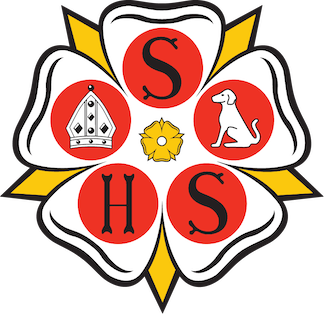Key Stage 5
Course Overview – AQA A Level French
The A-level French specification builds on the knowledge, understanding and skills gained at GCSE. It constitutes an integrated study with a focus on language, culture and society. It fosters a range of transferable skills including communication, critical thinking, research skills and creativity, which are valuable to the individual and society. The content is suitable for students who wish to progress to employment or further study, including a modern languages degree. The course has been designed to be studied over two years. The approach is a focus on how French-speaking society has been shaped, socially and culturally, and how it continues to change. In the first year, aspects of the social context are studied, together with aspects of the artistic life of French-speaking countries. In the second year, further aspects of the social background are covered, this time focusing on issues such as life for those on the margins of French-speaking society as well as looking at the positive influences that diversity brings. Students also study aspects of the political landscape in a French-speaking country, looking at immigration from the political perspective and at the way in which political power is expressed through action such as strikes and demonstrations. Teenagers and the extent to which they are politically engaged looks towards the future of political life in French-speaking society.
Progression Opportunities
France is one of the UK’s top trading partners. The country also boasts the seventh-largest economy in the world, the third-largest in Europe and ranked fourth in the Fortune Global 500 in 2020, beaten only by the USA, China and Japan. Furthermore, businesses in certain sectors will certainly want to take advantage of the French market. Home to world-famous brands and companies including Total, Renault, L’Oreal, Christian Dior and Michelin, France makes perfect territory for companies trading in everything from automobiles and telecommunications to fashion and food. Other big industries in France include tourism, transport and energy. Finally, French is the official language of 28 other countries scattered all around the globe as well of international organisations including the UN, FIFA, the European Union, Interpol and the African Union.
Awarding Body
AQA
Qualification code 7651
Course Content
Year 12
Artistic culture in the French-speaking world
A culture proud of its heritage / Contemporary francophone music / Cinema the 7th art form
Aspects of French-speaking society
The changing nature of the family / The ‘cyber-society’ / The place of voluntary work
One film from the specification list –
La Haine - Mathieu Kassovitz (1995)
Grammar -
Nouns, articles, adjectives, numerals, adverbs, quantifiers and intensifiers, pronouns, verbs, prepositions, conjunctions, negation, questions, commands, word order, discourse markers and fillers.
Year 13
Aspects of French-speaking society: current issues
Positive features of a diverse society / Life for the marginalised / How criminals are treated
Aspects of political life in the French-speaking world
Teenagers, the right to vote and political commitment / Demonstrations, strikes - who holds the power? / Politics and immigration
One text from the specification list
Kiffe Kiffe Demain by Faïza Guène
Individual research project
Students must identify a subject or a key question which is of interest to them and which relates to a country or countries where French is spoken. They must select relevant information in French from a range of sources including the internet.
Grammar
Study Methods
Your listening, reading, writing and speaking skills in French will be developed through a variety of tasks. You will read texts, listen to recorded material, watch films, take part in class debates and produce pieces of written work such as essays and translations. You will be expected to keep up with the news and do research to widen your knowledge and understanding of modern society. This will in turn help you to have a better understanding of the world around you, discern pros and cons or opposite points of views on certain topics and issues. As part of the course, you will have to complete an individual research project, allowing you to explore an area of your own choice (for example scientific, artistic, sport-related). The grammar you have learned at GCSE level will be reinforced and extended and you will gain an increasingly wide knowledge of vocabulary.
Method of Assessment
At the end of the course you will complete the following assessments:
Paper 1 Listening, reading and writing: Assessments on the four topics covered together with translation both into and from the target language (40%).
Paper 2 Writing: Written response to the film and the text studied (30%).
Paper 3 Speaking: Discussion based on a stimulus card on one of the themes covered together with a presentation and discussion of the individual research project (30%).
